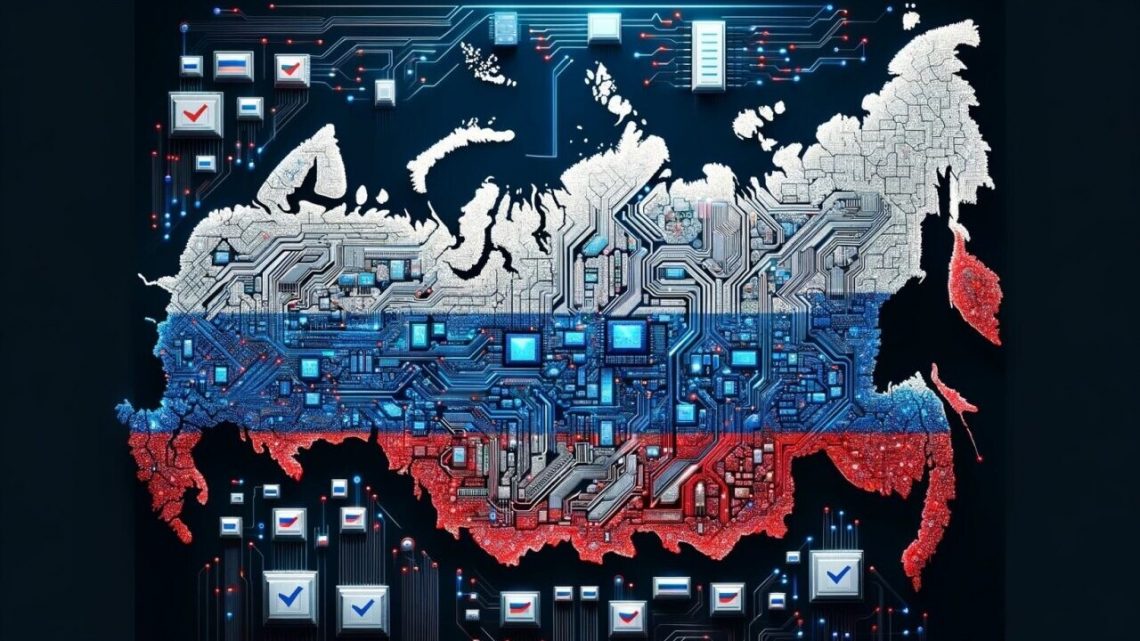
Pussy Riot lawyer launches blockchain-based poll to challenge legitimacy of Russian elections
Russian voters who don’t believe the 2024 presidential election is a just event can now make their voices heard through a blockchain-secured and encrypted referendum via the app Russia2024.
Tens of thousands of Russian nationals lined up at embassies around the world to cast their votes in this March’s presidential election. Outside the embassy in The Hague, Netherlands, voters – many of them carrying protest banners – waited for hours just to have their voices heard.
The theory. No one was surprised when Vladimir Putin was again declared the winner with 88 per cent of the vote. Not necessarily a direct falsification of the results, but the result of years of fear-mongering, voter surveillance and the elimination of any real opponents.
Now, those voters have been given a different avenue to express their dissatisfaction with the seemingly unassailable political status quo in their country (and blockchain technology proving its usefulness beyond crypto).

Russian opposition activist and former Pussy Riot lawyer Mark Fegyin has launched a blockchain-based referendum to challenge the legitimacy of this year’s elections. It is now live on the new Russia2024 app. The app, which first launched in March, is built on Freedom Tool, an unsupervised voting solution from Kiev, Ukraine-based privacy software specialist RariLabs.
Anti-Surveillance Avenues of Protest
Opposition radicalism and political dissent in Russia have been linked to persecution, imprisonment and even death. As a result, despite the desire to speak out, whether it’s against the war in Ukraine or the country’s increasingly stifling political climate, people remain silent because they – rightfully – fear for their lives.
Fear of surveillance also makes it highly unlikely that the results of votes and polls are representative of actual sentiment.
“Dissent in Russia is becoming more and more dangerous, and public opinion is harder to track,” says Mark Feygin, founder of Russia 2024. “It’s vital that we provide reliable, unmonitored access to protests and votes. russia2024 and its underlying technology have made this possible.
RariLab’s Rariro division built Freedom Tool to help give a voice to people living under authoritarian rule. It uses blockchain and zero-knowledge cryptography to ensure that authorities can’t track people using the platform, even though it has verified their eligibility to vote. It is open source and licence-free, and can be downloaded by anyone.
Its implementation in Russia is an early example of how blockchain and zero-knowledge cryptography can meet the urgent global need for privacy technology, said Lasha Antadze, co-founder of Rarimo provider RariLabs.
Using the app, voters can scan their biometric passports with their mobile phones to prove citizenship and eligibility. They then receive an anonymous voting card for polls and protest elections. The app then posts the ballots directly to the blockchain, where they are tamper-proof.
Zero-knowledge cryptography allows one party to prove to the other that they have certain information without revealing anything other than the fact that they know it.
Kremlin fights back with fake comments
The work behind apps like Russia2024 is certainly not without its dangers, as the painful recent death of Alexei Navalny illustrates.
So far, the Kremlin has only blocked the app by filing a lawsuit against it, which temporarily removed it from the Apple Store. Moscow then tried to downgrade the app’s rating by paying for negative reviews, a tactic uncovered by whistleblowers.
In a country where using the wrong words on Facebook can land you in jail for 15 years, it is vital that individuals can be confident that their privacy is safe and that the authorities won’t go after them for expressing their opinions, and these initiatives are vital. If someone wants to do this with blockchain, I say mine.




